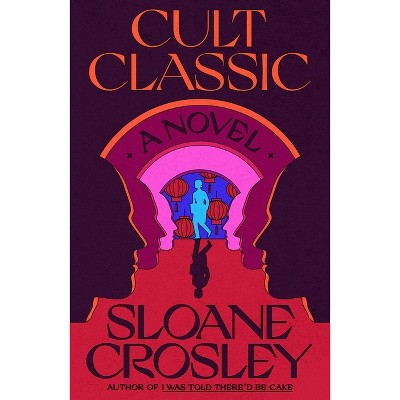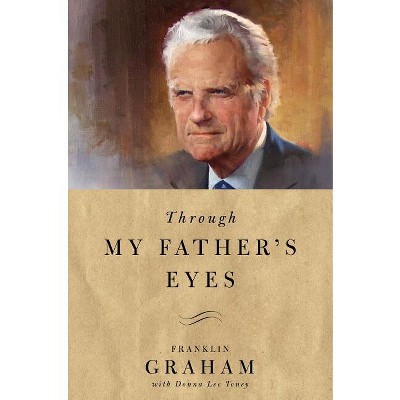Sponsored

The Cult of Creativity - by Samuel W Franklin
$26.00
In Stock
Eligible for registries and wish lists
Sponsored
About this item
Highlights
- A history of how, in the mid-twentieth century, we came to believe in the concept of creativity.
- About the Author: Samuel W. Franklin is a cultural historian and a postdoctoral researcher in human-centered design at the Delft University of Technology.
- 264 Pages
- History, United States
Description
About the Book
"Samuel Weil Franklin shows that in postwar America, the newfangled term "creativity" was the product of campaigns to harness the power of the individual to the demands of capitalist production and global hegemony. Franklin reveals that the champions of creativity were psychologists, educators, and management consultants who benefited from postwar technological progress yet worried that the resulting society might promote conformity and stifle ingenuity. Against increasingly reified institutions and systems, the "creative individual" took on a wealth of romantic, generative, and democratic associations. Creativity was the motive force behind the postwar individual, the literal spark-and cannon fodder-of progress"--Book Synopsis
A history of how, in the mid-twentieth century, we came to believe in the concept of creativity. Named a best book of 2023 by the New Yorker and a notable book of 2023 by Behavioral Scientist. Creativity is one of American society's signature values, but the idea that there is such a thing as "creativity"--and that it can be cultivated--is surprisingly recent, entering our everyday speech in the 1950s. As Samuel W. Franklin reveals, postwar Americans created creativity, through campaigns to define and harness the power of the individual to meet the demands of American capitalism and life under the Cold War. Creativity was championed by a cluster of professionals--psychologists, engineers, and advertising people--as a cure for the conformity and alienation they feared was stifling American ingenuity. It was touted as a force of individualism and the human spirit, a new middle-class aspiration that suited the needs of corporate America and the spirit of anticommunism. Amid increasingly rigid systems, creativity took on an air of romance; it was a more democratic quality than genius, but more rarified than mere intelligence. The term eluded clear definition, allowing all sorts of people and institutions to claim it as a solution to their problems, from corporate dullness to urban decline. Today, when creativity is constantly sought after, quantified, and maximized, Franklin's eye-opening history of the concept helps us to see what it really is, and whom it really serves.Review Quotes
"The Cult of Creativity is a fascinating account of the origins of contemporary creativity discourse that is sure to inspire further research in this area."-- "History of the Human Sciences"
"Timely and insightful. . . an illuminating examination of a highly visible yet under-examined feature of contemporary life."-- "Cleveland Review of Books"
"Franklin takes aim at this notion of team-led ideas meetings and brainstorming, tracing its origins back to the post-war era. Indeed, Franklin argues in his book that the concept of 'creativity' as we know it was very much a Cold War construct, part of a push to promote the thinking that cultural and artistic endeavours go hand-in-hand with political freedom."-- "Campaign US"
"In The Cult of Creativity, the cultural historian Franklin supplies a vital missing chapter of business history by refusing to accept creativity as a self-evident good and reframing it as a movement binding academic social scientists, university administrators, corporate managers and government agencies. It began during the Cold War and continues to mutate in our own times."-- "Milken Institute Review"
Named one of "Behavioral Scientist's Notable Books of 2023"-- "Behavioral Scientist"
"Franklin posits that 'creativity' is a concept invented in America after the Second World War, appearing primarily in two contexts: psychological research and business, each arising semi-independently, but feeding into and reinforcing each other. Humanistic psychologists--attuned to postwar anxieties about alienation and conformity--connected creativity with authenticity and self-expression. The advertising industry--the motor of consumerism--grabbed on to the term to appropriate the glamour and prestige of the artist and confer those attributes on admen and product designers. In the information age, countercultural values turned out to be entirely compatible with consumer capitalism. The difficulties that arose in defining creativity are intrinsic to the concept itself, Franklin argues, and his provocative book unpacks the history of a term whose origins are more recent than we might imagine."-- "New Yorker, on "Best Books of 2023""
"When we let people get away with thinking that creativity is the alpha and omega of existence, or even just of the business world, we sow a garden of vices. We've seen corporate monsters before, but it took the cult of creativity to concoct the particular monster called Elon Musk. Franklin's wonderful book made me understand, as never before, the forces that shaped this billionaire narcissist schmuck and not a few lesser rich schmucks as well."-- "The New Republic"
"Where did the concept of creativity come from? And why is it valued so highly? One answer is posited by Franklin's provocative new book. . . . Franklin cogently argues that creativity became a buzzword because it was a way to retool white-collar workers for a service economy--one that rewarded branding, research and development instead of Fordian manufacturing. . . . His book is an antidote for anyone who has sat, pen in hand, struggling to locate their 'divine muse.'"-- "The Economist"
"The Cult of Creativity comes at a technological turning point. The emergence of generative-AI tools has given us the option of outsourcing our brainstorming, becoming prompt engineers to idea-spitting machines. . . . In Mr. Franklin's idealistic scenario of the future, we will redirect our energy away from producing more disruptive innovations and toward a thoughtful consideration of 'what should be produced in the first place.' World-saving ideas and technologies are still needed--whether they result from creative thinking or not--but 'the space to question the goodness of the new, ' Mr. Franklin suggests, might be 'the big idea we need right now.'"-- "Wall Street Journal"
"Franklin challenges the notion that creativity is a trait that can be cultivated and unleashed by virtually anyone. . . . He proposes a nuanced and critical approach to the study of creativity, one that recognizes its complexity, diversity, and context-dependence. In doing so he offers a nicely written and well-researched book that casts a fresh and insightful perspective on a controversial topic. . . . Summing Up: Recommended. All readers."-- "CHOICE"
"Franklin's well-researched book on the young history of the word 'creativity' has simultaneously turned out to be a chronicle of the morals and values ruling post-war America - and implicitly many other Western countries. Its pleasant style and the many well-chosen quotations from the creativity literature, helped by the mildly critical tone, make for insightful and entertaining reading." -- "Leonardo"
"What Franklin leaves us with is a thought-provoking reevaluation of a celebrated societal value marbled with contradictions. All told, The Cult of Creativity is lucid, fresh and illuminating. If you need more adjectives than that, you'll have to brainstorm them yourself."-- "NewCity"
"As the subtitle of Franklin's book suggests, the highly valued quality we call 'creativity'--so ubiquitous today as to seem universal and timeless--is actually quite new. Franklin tells a story of psychologists, scholars, business management 'gurus, ' ad men, education policymakers, artists, and engineers who together reified creativity as immanently versatile, a trait both inherent to the individual and developable at scale. . . . It turns out the taken-for-granted virtue of creativity is yet another dubious invention of midcentury cold war and a product of academia's collusion with industry."-- "Public Books"
"In Franklin's account, creativity, the concept, popped up after the Second World War in two contexts. One was the field of psychology. Since the nineteenth century, when experimental psychology (meaning studies done with research subjects and typically in laboratory settings, rather than from an armchair) had its start, psychologists have been much given to measuring mental attributes. . . . The pages Franklin devotes to the contemporary creativity landscape are the freshest and most fun in the book."--Louis Menand "New Yorker"
"As historian Franklin notes in his forthcoming book The Cult of Creativity, the concept [of creativity] gained much of its cultural currency in the mid-20th century, when executives and other leaders tried to stimulate creativity in hopes of churning out better ad spreads and new technologies. With these titans' encouragement, Americans began to see creativity as a virtuous end in itself, buying into the promise that expanding our creative abilities could fulfill us individually and secure our collective future."-- "Boston Globe"
"The Cult of Creativity presents an exceptionally lucid look at the various ideas, doctrines, and programs behind the concept of creativity. Through keen analysis, Franklin brings together scholarship from a range of sources to frame this powerful social and cultural critique."
--Howard Brick, author of Transcending Capitalism: Visions of a New Society in Modern American Thought
"The Cult of Creativity is a beautifully written and well-documented account of how creativity gained the societal value it has today. Franklin reveals the powerful social construction at work behind the meaning of creativity and reminds us that such ideas have historical roots, as well as a more sinister side that should concern us all. Through engaging storylines, he builds a complex picture that is captivating to discover, piece by piece."--Vlad Glaveanu, author of Wonder: The Extraordinary Power of an Ordinary Experience
"Celebrated and sought-after, 'creativity' is often presented as the magic yet ineffable elixir for fame and fortune by today's artists, technologists, and business leaders. And yet--until Samuel Franklin's marvelous new book--it has been little studied as a historical phenomenon. The Cult of Creativity examines how, after World War II, a fascinating ensemble of psychologists, advertising executives, and other assorted gurus attempted to explain and quantify human ingenuity. The result is an insightful and delightful exploration into how we think about technology, capitalism, and consumerism."--W. Patrick McCray, author of Making Art Work: How Cold War Engineers and Artists Forged a New Creative Culture
About the Author
Samuel W. Franklin is a cultural historian and a postdoctoral researcher in human-centered design at the Delft University of Technology. He has earned awards and fellowships from the Smithsonian Institution's Lemelson Center for the Study of Invention and Innovation, the Hagley Library and Museum, the Hathi Trust Research Center, the Stanford Arts Institute, and Brown University's Center for Digital Scholarship. He has developed exhibitions for the American Museum of Natural History, the National September 11 Memorial and Museum, and others.Dimensions (Overall): 8.8 Inches (H) x 6.2 Inches (W) x 1.2 Inches (D)
Weight: 1.1 Pounds
Suggested Age: 22 Years and Up
Number of Pages: 264
Genre: History
Sub-Genre: United States
Publisher: University of Chicago Press
Theme: 20th Century
Format: Hardcover
Author: Samuel W Franklin
Language: English
Street Date: April 18, 2023
TCIN: 1006099511
UPC: 9780226657851
Item Number (DPCI): 247-48-1508
Origin: Made in the USA or Imported
If the item details aren’t accurate or complete, we want to know about it.
Shipping details
Estimated ship dimensions: 1.2 inches length x 6.2 inches width x 8.8 inches height
Estimated ship weight: 1.1 pounds
We regret that this item cannot be shipped to PO Boxes.
This item cannot be shipped to the following locations: American Samoa (see also separate entry under AS), Guam (see also separate entry under GU), Northern Mariana Islands, Puerto Rico (see also separate entry under PR), United States Minor Outlying Islands, Virgin Islands, U.S., APO/FPO
Return details
This item can be returned to any Target store or Target.com.
This item must be returned within 90 days of the date it was purchased in store, shipped, delivered by a Shipt shopper, or made ready for pickup.
See the return policy for complete information.
Trending Non-Fiction

$15.68
Buy 2, get 1 free select books
4.8 out of 5 stars with 181 ratings

$19.31
was $20.98 New lower price
Buy 2, get 1 free select books
4.1 out of 5 stars with 53 ratings

$19.58
MSRP $29.00
Buy 2, get 1 free select books
4.7 out of 5 stars with 11 ratings

$4.59
MSRP $7.99
Buy 2, get 1 free select books
4.8 out of 5 stars with 116 ratings

$6.20
MSRP $10.95
Buy 2, get 1 free select books
4.8 out of 5 stars with 32 ratings

$7.09
MSRP $9.99
Buy 2, get 1 free select books
4.9 out of 5 stars with 45 ratings





